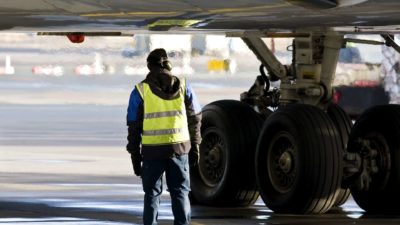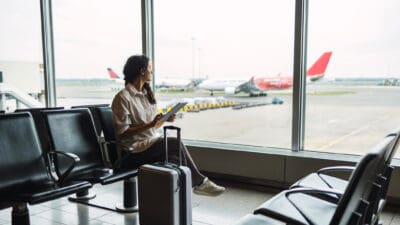The Qantas Airways Limited (ASX: QAN) share price hit another 52-week high on Thursday.
The ASX 200 travel share ascended to $6.87 in morning trading, up 1.47% on the previous close.
Meantime, the S&P/ASX 200 Index (ASX: XJO) is flat today at 7,370 points.
Why is the Qantas share price taking off?
The Qantas share price is up 30% over the past six months compared to 6% for the ASX 200.
Qantas shares have been on a tear since mid-2022 when the ASX 200 began to regather from the shock of rising inflation and the commencement of a rising interest rate cycle for the first time since 2010.
But what's really pushing Qantas shares up is a rapid return to travelling post-pandemic.
Domestic and international travel is rising, and China's recent decision to relax some travel restrictions adds to the clear blue-sky outlook for the Qantas share price.
Could Qantas shares really hit $10?
According to The Australian today, top broker JPMorgan thinks Qantas shares could rise above $10 for the first time if earnings growth continues.
Analyst Anthony Longo forecasts the Qantas share price to reach $9 within a year. That would represent a 30% rise on today's new 52-week high. And Longo reckons it could rise to $10 or more from there.
Longo cites a few reasons for his bold predictions. They include the highly successful Qantas loyalty program, Virgin Australia's impending initial public offering (IPO), a fleet refresh, and increased airfares.
Longo expects Qantas to deliver a $2.5 billion profit before tax in FY23, increasing to $2.8 billion by FY25.
To put this into perspective, Qantas just reported an underlying profit before tax of $1.43 billion for 1H FY23. So, it's more than halfway towards achieving a full-year profit around the level Longo expects.
This compares to a 1H FY22 loss of $1.3 billion — talk about a rapid turnaround!
Are travellers paying to boost Qantas profits?
Increased domestic airfares almost 30% above those of 2019 are a bone of contention for travellers right now, with the Australian Competition and Consumer Commission stepping in to warn airlines to cut them.
According to abc.net.au, the average domestic ticket price across all fare types was 29% higher in nominal terms (actual prices) in January, or 13% higher in real terms (adjusted for inflation) than in 2019.
The ACCC has also revealed that Qantas is the most complained about airline.
What's been happening with Qantas stock lately?
The ASX 200 travel stock took a dive on 23 February when the company released its 1H FY23 results.
Despite reporting a $1.43 billion profit and a $500 million share buyback, Qantas was sold off.
As my Fool colleague James reported, this was because the result was slightly below expectations and capex expenditure was rising faster than anticipated.
Also, some investors may have been disappointed with the choice to do a buyback instead of resuming dividends.
However, a dramatic rebound began immediately.
The Qantas share price is now up 13% in the two weeks since the results were released.








